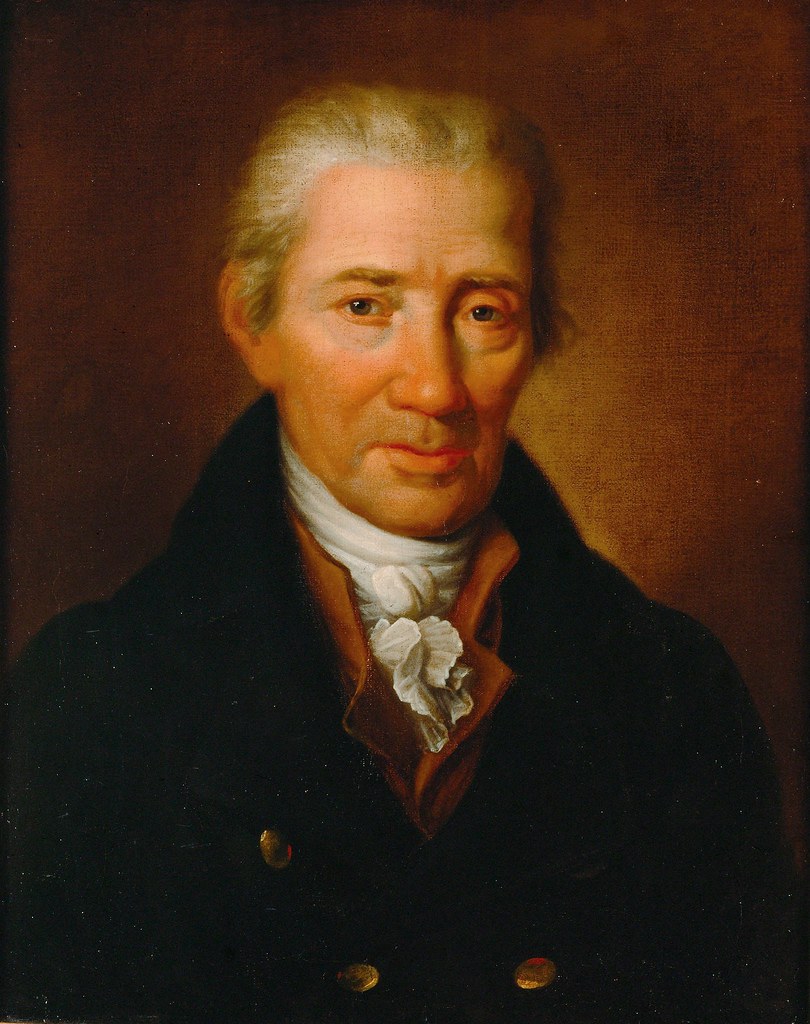Johann Georg Albrechtsberger (1736-1809) - Concertino in D a 5 (1769)
Performers: Piccolo Concerto Wien
Further info: Johann Georg Albrechtsberger (1736-1809)
---
Austrian composer, teacher, theorist and organist. From the age of seven
he served as a choirboy for the Augustinians in Klosterneuburg, where
he learnt the organ and figured bass from the dean, Leopold Pittner. His
studies in composition under G.M. Monn (if accurately reported by
Albrechtsberger's pupil Johann Fuss) must have taken place during this
period. As a student and choirboy at Melk Abbey from 1749 until 1754, he
received a thorough training in composition and organ from Marian
Gurtler, the regens chori, and Joseph Weiss, the abbey's organist. After
a year of study at the Jesuit seminary in Vienna he worked as an
organist in various provincial localities: Raab (now Győr, Hungary),
1755–7; Maria Taferl, near Melk, 1757–9; and Melk Abbey, 1759–65, where
he succeeded his former teacher Weiss. His precise place of employment
in 1766 remains unknown, but Melk sources indicate that he left the
abbey voluntarily in November 1765 to join his brother Anton in the
service of a Baron Neissen in Silesia (perhaps at what is now Nysa,
Poland). Albrechtsberger's activities can be traced from his parents'
home in Ebersdorf (near Melk) in 1767 to Vienna, where he married in May
the following year. From 1772 he served both as regens chori for the
church of the Carmelites (later known as St Joseph's) and as organist in
the imperial court orchestra. In addition he was appointed assistant to
the Kapellmeister Leopold Hofmann at the Stephansdom in 1791, a
position arranged for him by his friend and predecessor Mozart. All of
these duties were set aside when he became Kapellmeister following
Hofmann's death in 1793. He retained this post – the highest in the
empire for a church musician – for the remainder of his life.
Albrechtsberger was a prolific composer of some 284 church compositions,
278 keyboard works and over 193 works for other instruments. His most
interesting and original music was composed during his years as a
provincial organist before settling permanently in Vienna. He cultivated
a modern, homophonic idiom in the instrumental works of this period and
used unusual instrumentation with special effects such as scordatura
and slow movements marked ‘con sordino’. The church music is more
contrapuntal in conception and occasionally experimental in its
treatment of the voices (e.g. alternating solo quartet and chorus, and
the use of recitative). Some of his best vocal music is in the early
oratorios, several of which belong to the Austrian tradition of Easter
sepolcro. At Melk he was considered ‘a most commendable artist in this
genre’, although there seems to have been no occasion for him to write
oratorios after 1781. After his imperial appointment in 1772 he became
increasingly preoccupied with the composition of fugues – over 240 for
instruments in addition to numerous examples in the sacred music. His
two-movement sonate (slow homophonic, fast fugal), of which he wrote
over 120 for various instrumental combinations after 1780, developed out
of the Baroque church sonata but were intended for chamber rather than
church performance. They had little influence on the already mature
sonata form. His approach to Viennese church composition tended, as
Weissenbäck noted, towards formal sectionalization or polarization of
homophonic and polyphonic textures. In spite of their technical
refinements, these late works seem less imaginative than those of his
earlier years. Eye-witness accounts by critics such as Maximilian
Stadler, Burney, Nicolai and Pasterwitz leave little doubt that
Albrechtsberger was an extraordinarily talented organist. Mozart, the
most reliable judge of all, considered his playing the standard by which
other organists were to be measured (letter to Constanze, 16 April
1789). Towards the end of his life he was recognized as ‘perhaps the
greatest organist in the world’.

Cap comentari:
Publica un comentari a l'entrada